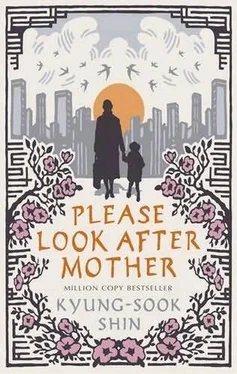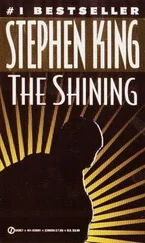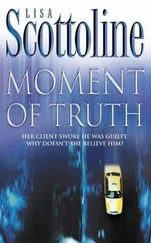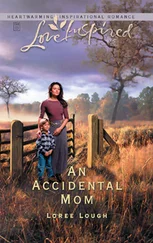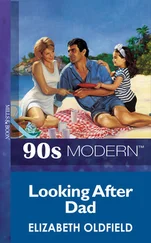“What do you mean, in constant pain? Mom has always been pretty healthy.”
“Well, I don’t think that’s true,” the doctor said.
You felt as if a nail hidden in your pocket had leaped out and ambushed you, stabbing the back of your hand. The doctor drained the blood pooled in Mom’s brain, but her headaches didn’t get better. One minute Mom would be talking, and the next minute she would be holding her head gingerly, as if it were a glass jar about to break, and she would have to go home and lie down on the wooden platform in the shed.

“Mom, do you like being in the kitchen?” When you asked this once, your mom didn’t understand what you meant.
“Did you like being in the kitchen? Did you like to cook?”
Mom’s eyes held yours for a moment. “I don’t like or dislike the kitchen. I cooked because I had to. I had to stay in the kitchen so you could all eat and go to school. How could you only do what you like? There are things you have to do whether you like it or not.” Mom’s expression asked, What kind of question is that? And then she murmured, “If you only do what you like, who’s going to do what you don’t like?”
“So-what-you liked it or not?”
Mom looked around, as if she was going to tell you a secret, and whispered, “I broke jar lids several times.”
“You broke jar lids?”
“I couldn’t see an end to it. At least with farming, if you plant seeds in the spring you harvest them in the fall. If you plant spinach seeds, there is spinach; where you plant corn, there’s corn… But there’s no beginning or end to kitchen work. You eat breakfast, then it’s lunch, and then it’s dinner, and when it’s bright again it’s breakfast again… It might have been better if I could have made different side dishes, but since the same things were planted in the fields, I always made the same panchan. If you do that over and over, there are times when you get so sick of it. When the kitchen felt like a prison, I went out to the back and picked up the most misshapen jar lid and threw it as hard as I could at the wall. Aunt doesn’t know that I did that. If she did, she would say I was crazy, throwing jar lids around.”
Your mom told you that she would buy a new lid within a few days to replace the one she broke. “So I wasted some money. When I went to get the new lid, I thought it was so wasteful and felt terrible, but I couldn’t stop. The sound of the lid breaking was medicine to me. I felt free.” Your mom put a finger to her lips and said, “Shh,” in case someone could hear. “It’s the first time I’m telling this to anyone!” A mischievous grin hovered on her face. “If you don’t want to cook, you should try throwing a dish. Even if you’re thinking, Oh, what a waste, you’re going to feel so light. Of course, since you’re not married, you wouldn’t feel that way anyway.”
Your mom let out a deep sigh. “But it was nice when you kids were growing up. Even when I was so busy that I didn’t have time to retie the towel on my head, when I watched you sitting around the table, eating, with your spoons making a racket in the bowls, I felt like there was nothing else I wanted in the world. You were all so easy. You dug in happily when I made a simple zucchini-and-bean-paste soup, and your faces lit up if I steamed some fish once in a while… You were all such good eaters that when you were growing I was sometimes afraid. If I left a pot filled with boiled potatoes for your after-school snack, the pot would be empty when I came home. And there were days when I could see the rice in the jar in the cellar disappearing day by day, and times when the jar would be empty. When I went to the cellar to get some rice for dinner and my scoop scraped the bottom of the rice jar, my heart would sink: What am I going to feed my babies tomorrow morning? So in those days it wasn’t about whether I liked to be in the kitchen or not. If I made a big pot of rice and a smaller pot of soup, I didn’t think of how tired I was. I felt good that these were going into my babies’ mouths. Now, you probably can’t even imagine it, but in those days we were always worried that we would run out of food. We were all like that. The most important thing was eating and surviving.” Smiling, your mom told you that those days were the happiest in her life.
But Mom’s headaches stole the smiles from her face. Her headaches jabbed at her soul and slowly ate away at it, like field mice with sharp teeth.

The man you went to for help in printing the flyers is wearing old cotton clothes. Anyone glancing at him would be able to tell that he’s wearing a very carefully sewn outfit. Even though you know he always wears old cotton clothes, you can’t help focusing on them. He has already heard about your mom and tells you that he will design the flyer based on your mock-up and print them out quickly, at a printing shop his business acquaintance uses. Since there aren’t any recent pictures of Mom, you and your siblings have decided to use the family picture that your brother posted on the Internet. The man looks at Mom’s face in the picture. “Your mother is very pretty,” he says.
Out of the blue, you comment that his clothes are very nice.
He smiles at your words. “My mother made this for me.”
“But didn’t she pass away?”
“When she was alive.”
He tells you that since he was a child he has only been able to wear cotton, because of various allergies. When other fabrics touched his skin, he became itchy and got a rash. He grew up wearing only the cotton clothes his mother made. In his memories, his mother was always sewing. She would have had to sew and sew to make everything personally, from his underwear to his socks.
He says that when he opened her closet after she passed away he found stacks of cotton clothes that would last him for the rest of his life. That his outfit today is one he found in that closet. What did his mother look like? Your heart aches as you listen to him. You ask the man who is remembering his beloved mother, “Do you think your mother was happy?”
His words are polite, but his expression tells you that you’ve insulted his mother:
“My mother was different from today’s women.”

A WOMAN TAKES ONE of his flyers and pauses for a moment to look at the picture of Mom. Under the clock tower where Mom used to wait for him.
After he found a place in the city, Mom would arrive at Seoul Station looking like a war refugee. She would walk onto the platform with bundles balanced on her head and slung over her shoulders and in her hands, the things she couldn’t otherwise carry strapped to her waist. It was amazing that she could still walk. If she could have, Mom would have come to see him with eggplants or pumpkins tied to her legs. Her pockets often bulged with unripe peppers, peeled chestnuts, or peeled garlic wrapped in newspaper. Whenever he went to meet her, he would see a heap of so many parcels by Mom’s feet and marvel that one woman could have brought them all by herself. Standing amid the packages, Mom would look around, her cheeks flushed, waiting for him.
The woman comes up to him hesitantly, pointing to the picture of his mom printed on the flyer, and says, “Excuse me, I think I’ve seen her in front of the Yongsan 2-dong office.” On the flyer his younger sister made, his mom smiles brightly, wearing a pale-blue hanbok. The woman continues, “She wasn’t wearing this outfit, but the eyes are so similar, and I remember them because they looked honest and loyal.” The woman looks again at his mom’s eyes in the flyer and adds, “She had a cut on her foot.” She says his mom was wearing blue plastic sandals, one of which was cutting into her foot near her big toe, and a piece of flesh had fallen off, creating a groove, perhaps because she’d walked so far. The woman tells him that flies buzzed around and landed near the pus-filled wound, and that his mom kept shooing them away with her hand, as if she was irritated. And even though the gash looked painful, she kept staring into the office as if she didn’t feel it. This was about a week ago.
Читать дальше
